Fritextsökning
Artiklar per år
Innehållstyper
-
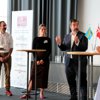
What will be the next big hype after obesity? – An expert panel highlighted their top picks
What will be the next big trend in life science? Everything from Alzheimer’s, Crispr and Omics were highlighted when the issue was debated at this year’s major life science event in Lund.
-
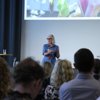
Artificial intelligence in radiology – “Risk prediction is very exciting”
A growing number of solutions based on artificial intelligence are being developed and used in healthcare. According to Sophia Zackrisson, Professor of Radiology at Lund University, radiology is a field that is well suited to the technology.
-

Bavarian vill ge mpox-vaccin även till ungdomar
Danska Bavarian Nordic har lämnat in en ansökan om utökad användning av bolagets mpox-vaccin så att det även kan ges till ungdomar i åldern 12-17 år.
-

The investor: “The major common diseases are hot again”
She has previously been voted Investor of the Year and will now be moderating The Future of Swedish & Danish Life Science congress. We check the temperature of the industry with Nina Rawal from Trill Impact Advisory.
-

Lecanemab har lanserats i Kina
Forskningsbolaget Bioarctics partner Eisai meddelar att Leqembi (lecanemab) har lanserats i Kina.
-

Regionerna om staten och vården: ”Betala gärna, men lägg er inte i”
Staten bör ta ett större ansvar för finansieringen av läkemedel – men ska inte gå in och styra mer över hälso- och sjukvården. Det är inställningen hos regionernas toppolitiker, enligt en enkät.
-

Carl-Henrik Heldin ny rådgivare åt Rarity Bioscience
Rarity Bioscience får ett tungt tillskott till sitt vetenskapliga råd. Carl-Henrik Heldin, professor vid Uppsala universitet och tidigare styrelseordförande för Nobelstiftelsen, är ny extern rådgivare till bolaget.
-

Innovative start-up helps doctors, scientists and industry balance coagulation risks
For many doctors caring for seriously ill patients, for example, in stroke units and cancer wards, maintaining the life-saving balance between bleeding and thrombosis is an ongoing challenge. In the late 1980s, scientists at Maastricht University in the Netherlands developed an innovative method, the thrombin generation assay (TGA), which provides a complete overview of a physiological process crucial for maintaining normal haemostasis.
-

Lundabolag får brittiskt miljonbidrag för blodtest
Lundabolaget Prolight Diagnostics har fått ett statligt brittiskt bidrag på 17 miljoner kronor för fortsatt utveckling av ett blodtest som ska upptäcka eller utesluta hjärtinfarkt.
-

Avnotering ska rädda krisande diagnostikbolag
Cancerdiagnostikbolaget Neodynamics planerar att ansöka om avnotering från Nasdaq Stockholm. Orsaken är att det bedöms öka chansen att få in det kapital som behövs för att rädda bolaget undan konkurs.
-

Carl Borrebaeck – professor and serial entrepreneur with a taste for speed
Award-winning cancer researcher, the founder of many listed companies, and constantly in the academic and commercial spotlight for decades. However, Carl Borrebaeck, Professor of Immunotechnology at Lund, is not yet satisfied. “We have a new, potentially super exciting project in the pipeline,” he says.
-
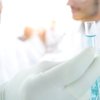
Stark comeback för Affibody-kandidat efter misslyckande i fjol
Positiva data rapporteras för Affibodys läkemedelskandidat Izokibep vid behandling av psoriasisartrit (PsA) i en fas IIb/III-studie.
-

Samuel Lagercrantz: ”Will the Swedish life science strategy be updated with precision?”
What will the Swedish government focus on in the life science strategy that is being updated? And what should be prioritized in the strategy? Life Science Sweden's editor-in-chief Samuel Lagercrantz highlights three areas.
-

Nextcell omstrukturerar och minskar personalstyrkan
Nextcell Pharma har beslutat att genomföra strategiska förändringar som bland annat medför en minskning av personalstyrkan.
-

To build trust, one must be able to say “I don’t know” – whether human or AI
Will AI strengthen or break down trust? It depends on whether we can understand and accept its limitations, and our own, writes Sarah Lidé in a column.
-

Slut på koleravaccin – samtidigt ökar utbrotten
Det globala nödlagret av vaccin mot kolera är tomt. Under resten av året väntar brist på över 50 miljoner doser, enligt WHO.
-

Ingrid Lönnstedt: Demystification of the power of a scientific study
”You surely do realize that even the smallest changes in study assumptions may influence the estimated sample size needed. And how is it even possible to guess the magnitude of the treatment effect before performing the study?” writes Ingrid Lönnstedt in a column.
-
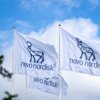
EMA-besked nära om breddat godkännande för Wegovy
En expertpanel inom EMA väntas i veckan ta ställning till om viktminskningsläkemedlet Wegovy även bör godkännas som behandling för att minska risken för stroke och hjärtinfarkt.
-
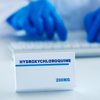
Malariamedicin mot covid: Sex fall av misstänkta biverkningar i Sverige
Läkemedelsverket har fått in sex rapporter om misstänkta biverkningar i samband med att covidpatienter behandlats med malarialäkemedlet klorokin. I ett av fallen dog patienten.
-

Verkningslös covidbehandling kan ha dödat 17 000
Ogrundade förhoppningar på substanserna klorokin och hydroxiklorokin som behandling mot covid-19 kan ha lett till att närmare 17 000 personer miste livet, enligt en ny studie.
-
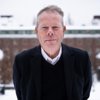
Mathias Uhléns proteinatlas utsedd till global resurs
Databasen The Human Protein Atlas har som den första i Sverige blivit utsedd till ett så kallat Global Core Biodata Resource. Enligt Mathias Uhlén innebär det en kvalitetsstämpel och möjlighet till fler samarbeten.
-
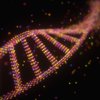
Business Sweden: “Companies have a lot to offer in data-driven precision medicine”
Data-driven precision medicine can potentially solve major healthcare problems, states Business Sweden in a new report on the subject.
-
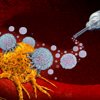
FDA utreder risk för ny cancer efter CAR-T-behandling
Den amerikanska läkemedelsmyndigheten FDA utreder om CAR-T-terapier mot cancer i sällsynta fall kan leda till att patienter utvecklar ny cancer i form av lymfom eller andra cancerformer.
-

The physician at the tech giant: “Observations in the emergency room made my mind up”
When Nasim Farrokhnia was in third grade at school in Tehran, the capital of Iran, her father gave her a book about Marie Curie, which soon became her favourite book. Perhaps her interest in science was born there and then, as science and new technology have since been a constant feature of her working life. Today, she is a Healthcare Manager in Microsoft’s Western Europe team.